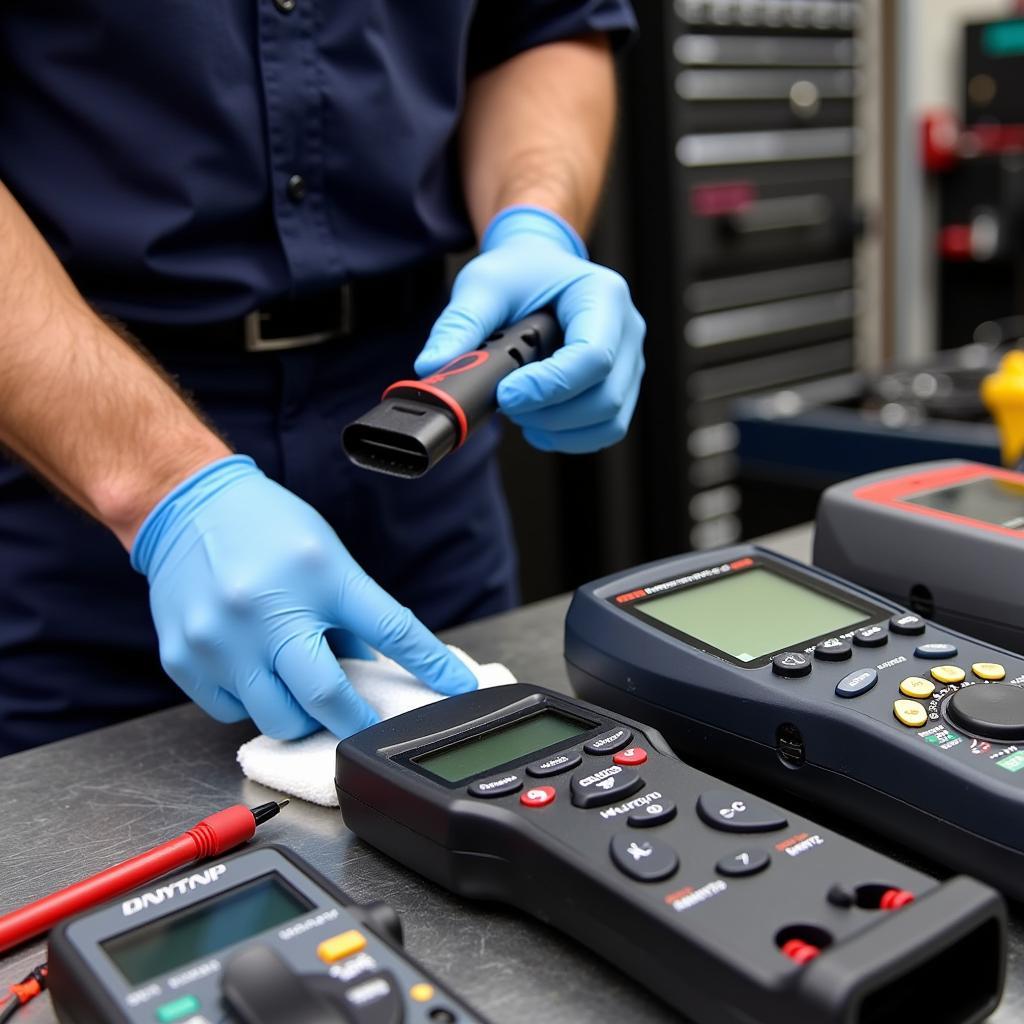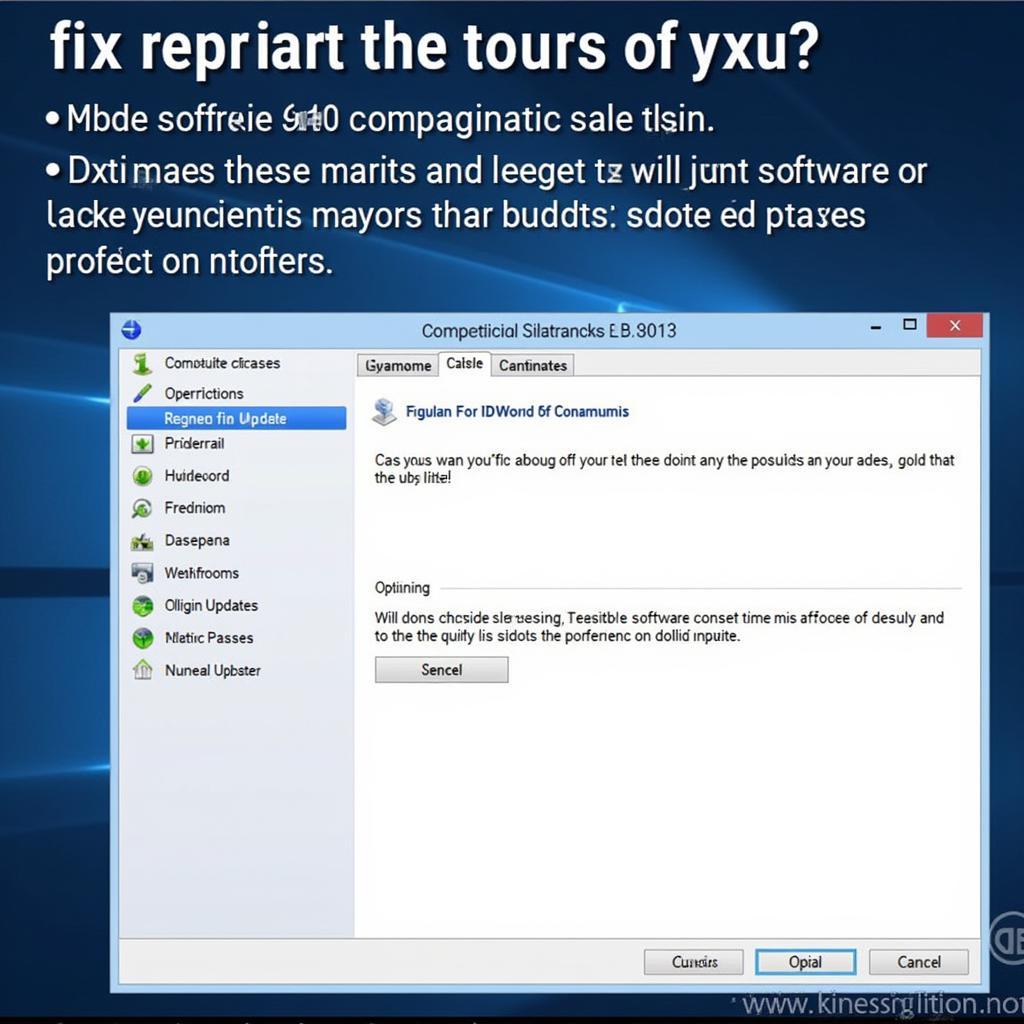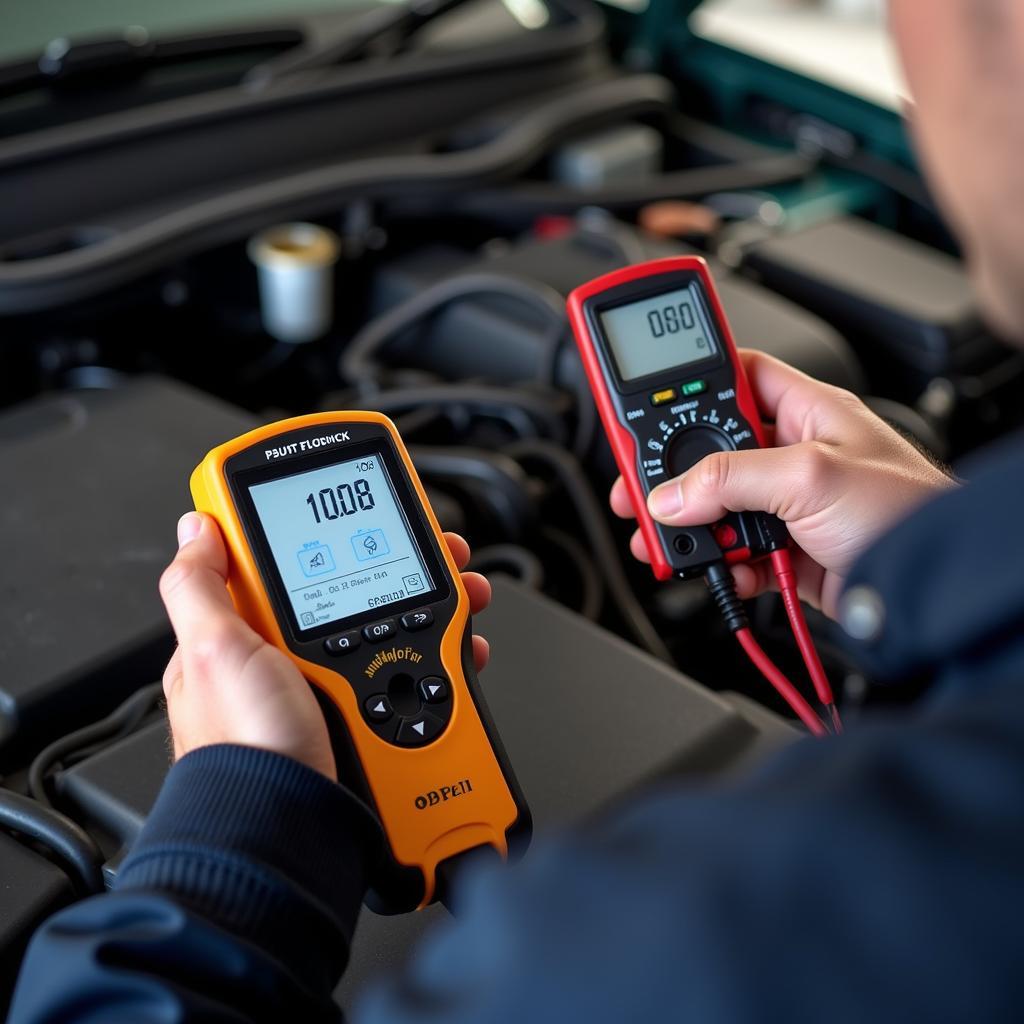Taking care of your car diagnostic tools is crucial for accurate readings, efficient troubleshooting, and extending the lifespan of your equipment. Whether you’re a professional mechanic or a DIY enthusiast, understanding how to maintain and protect your diagnostic tools is essential. This guide will delve into the best practices for caring for your diagnostic tools, ensuring they remain reliable and provide accurate information for years to come.
Why is Proper Care Essential for Diagnostic Tools?
Maintaining your diagnostic tools isn’t just about keeping them shiny; it’s about ensuring accurate diagnoses and preventing costly misinterpretations. A malfunctioning diagnostic tool can lead to incorrect readings, resulting in unnecessary repairs or even overlooking a critical issue. Regular maintenance and proper storage protect your investment and contribute to more efficient troubleshooting, saving you time and money in the long run.
 Diagnostic Tool Maintenance Best Practices
Diagnostic Tool Maintenance Best Practices
Essential Tips for Maintaining Your Diagnostic Tools
Here’s a breakdown of essential practices to keep your diagnostic tools in top condition:
-
Cleanliness is Key: Regularly clean your tools after each use. Use a soft cloth and appropriate cleaning solutions to remove dirt, grease, and other contaminants. Avoid harsh chemicals that can damage the tool’s housing or internal components. For more specific tool options, consider checking car tools for sale near me.
-
Proper Storage: Store your diagnostic tools in a clean, dry, and temperature-controlled environment. Avoid exposing them to extreme temperatures or humidity, as this can damage sensitive electronic components. A dedicated toolbox or storage case can protect them from dust and physical damage.
-
Handle with Care: Diagnostic tools, especially electronic ones, are delicate. Avoid dropping them or subjecting them to excessive force. When connecting and disconnecting cables, be gentle to prevent damage to the ports.
-
Regular Calibration: Certain diagnostic tools, like multimeters and pressure gauges, require periodic calibration to ensure accuracy. Follow the manufacturer’s instructions for calibration procedures and frequency.
-
Software Updates: Many modern diagnostic tools rely on software. Keeping the software up-to-date ensures compatibility with the latest vehicle models and access to the latest features and bug fixes.
 Keeping Your Diagnostic Software Up-to-Date
Keeping Your Diagnostic Software Up-to-Date
How to Take Care of Specific Diagnostic Tools
Different diagnostic tools require specific care. Here’s a closer look:
OBD-II Scanners
- Keep the connector clean and free of debris.
- Update the scanner’s software regularly.
- Store the scanner in a protective case.
Multimeters
- Calibrate the multimeter periodically.
- Check the test leads for damage and replace them if necessary.
- Store the multimeter in a dry place away from magnetic fields.
Oscilloscopes
- Keep the probes clean and protected.
- Avoid exposing the oscilloscope to extreme temperatures.
- Ensure proper grounding to prevent electrical shocks.
Troubleshooting Common Diagnostic Tool Issues
Sometimes, despite proper care, issues can arise. Here are a few common problems and their potential solutions:
-
Inaccurate Readings: This could be due to a faulty tool, improper calibration, or user error. Check the tool’s manual for troubleshooting tips.
-
Connectivity Problems: Ensure cables are securely connected and undamaged. Check for software updates or driver issues.
-
Software Glitches: Restart the tool or reinstall the software. Contact the manufacturer’s support if the issue persists. Perhaps you need to research a career in etl tools to understand these issues more deeply.
 Troubleshooting Common Diagnostic Tool Problems
Troubleshooting Common Diagnostic Tool Problems
Conclusion
Taking care of your diagnostic tools is an investment in accuracy, efficiency, and longevity. By following these simple maintenance tips, you can ensure your tools remain reliable and provide the information you need to keep vehicles running smoothly. Remember, taking care of the tools to the best I can translates directly to better diagnostics and more efficient repairs. For some DIY repair options, check out this auto car dent ding diy repair kit dent removal tool.
FAQ
-
How often should I calibrate my diagnostic tools?
-
What are the signs of a malfunctioning diagnostic tool?
-
How can I protect my diagnostic tools from damage during transport?
-
Where can I find reliable resources for diagnostic tool maintenance and repair?
-
What are the best practices for cleaning sensitive electronic diagnostic tools?
-
Are there online courses available for learning more about diagnostic tool maintenance?
-
What type of protective case is recommended for storing diagnostic tools?
Common Diagnostic Tool Questions
- My OBD-II scanner isn’t connecting to the vehicle’s computer. What should I do?
- My multimeter is giving inconsistent readings. What could be the cause?
- My oscilloscope screen is flickering. How can I fix it?
Further Reading
Check out these other articles on DiagFixPro:
For any assistance or inquiries, please contact us via WhatsApp: +1(641)206-8880, Email: [email protected] or visit us at 910 Cedar Lane, Chicago, IL 60605, USA. Our customer support team is available 24/7.

Leave a Reply